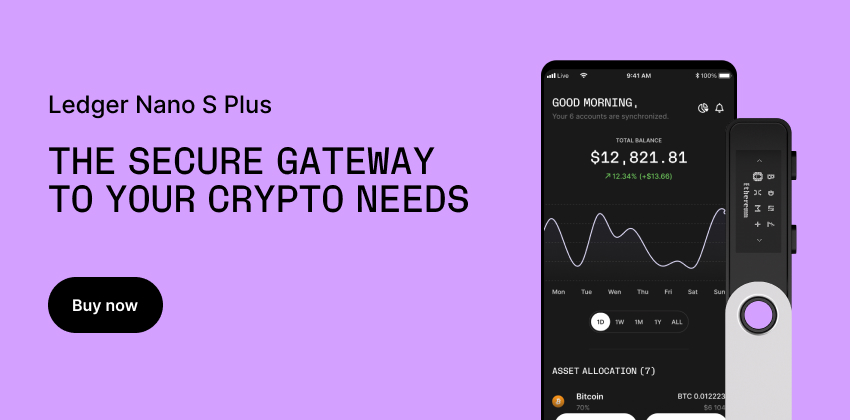Table of Contents
ToggleAbstract
The rapid growth of cryptocurrencies and their underlying blockchain technology has led to the emergence of various crypto payment solutions for e-commerce businesses. These solutions provide a convenient and secure alternative to traditional payment methods, such as credit cards and bank transfers. This paper examines the different technologies and solutions for accepting crypto payments in e-commerce, their integration with backend systems, performance, and security considerations. We compare various crypto payment gateways and discuss their pros and cons while ranking the most commonly accepted cryptocurrencies. Finally, we draw a conclusion on the most suitable solution for e-commerce businesses looking to adopt cryptocurrency payments.
1. Introduction
The world of e-commerce has seen significant growth in recent years, with an increasing number of businesses and consumers looking for more convenient, secure, and cost-effective payment solutions. Cryptocurrencies, such as Bitcoin, Ethereum, and Litecoin, have emerged as a viable alternative to traditional payment methods, offering numerous benefits, including faster transaction speeds, lower fees, and enhanced security. This paper examines the different crypto payment solutions available to e-commerce businesses and provides a comparative analysis to help businesses choose the most suitable option for their specific needs.
2. Technologies and Solutions for Accepting Crypto Payments
2.1. Crypto Payment Gateways
Crypto payment gateways allow e-commerce businesses to accept cryptocurrency payments by integrating with their existing systems. Some popular crypto payment gateways include:
2.1.1 BitPay
BitPay is a widely-used cryptocurrency payment gateway that offers a seamless integration with popular e-commerce platforms such as Shopify, WooCommerce, and Magento. Established in 2011, BitPay supports various cryptocurrencies, including Bitcoin, Ethereum, Bitcoin Cash, and stablecoins like USDC and GUSD. Some of the key features of BitPay include instant conversion to local fiat currencies, daily payouts, and a user-friendly dashboard for transaction monitoring and management. BitPay also provides a point-of-sale (POS) app for brick-and-mortar businesses, as well as an invoicing system for billing customers. Additionally, BitPay offers a BitPay Card, which allows users to convert cryptocurrencies into fiat currencies for spending at Visa-compatible merchants or ATMs.
2.1.2 CoinGate
CoinGate is another popular crypto payment gateway that enables e-commerce businesses to accept a wide range of cryptocurrencies, including Bitcoin, Ethereum, Litecoin, and over 50 other altcoins. It provides easy integration with e-commerce platforms like Shopify, WooCommerce, and PrestaShop through plugins and APIs. CoinGate offers several key features, such as real-time exchange rates, automatic conversion to fiat currencies, and customizable payment interfaces. It also includes a reliable fraud and risk management system to protect businesses from chargebacks and fraud attempts. CoinGate provides businesses with the option of receiving payouts in cryptocurrencies or fiat currencies, enabling flexibility in fund management.
2.1.3 CoinPayments
CoinPayments is a comprehensive crypto payment solution that supports over 1,900 cryptocurrencies, making it one of the most versatile gateways in the market. It allows for easy integration with popular e-commerce platforms through plugins and APIs. Key features of CoinPayments include GAP600 instant confirmations, which significantly reduce transaction confirmation times, and a vault service that provides additional security for stored cryptocurrencies. CoinPayments also offers an auto-conversion feature that enables businesses to accept cryptocurrencies and automatically convert them to a preferred currency, minimizing exposure to market volatility. Additionally, the platform provides shopping cart plugins, invoicing tools, and a POS interface for brick-and-mortar stores.
2.1.4 Coinbase Commerce
Coinbase Commerce is a cryptocurrency payment solution developed by the leading cryptocurrency exchange, Coinbase. It supports Bitcoin, Ethereum, Litecoin, Bitcoin Cash, and USD Coin. One of the primary benefits of using Coinbase Commerce is its ease of integration with e-commerce platforms like Shopify, WooCommerce, and Magento. Key features include no-fee transactions between Coinbase users, a simple and clean user interface, and an easy-to-use API for custom integrations. Coinbase Commerce provides a secure environment for cryptocurrency transactions by employing two-factor authentication (2FA), email notifications for transaction confirmations, and optional withdrawal address whitelisting for added security.
2.1.5 GoCoin
GoCoin is a reliable crypto payment gateway that supports Bitcoin, Ethereum, Litecoin, Bitcoin Cash, and Dash. It focuses on providing a simple and straightforward integration process with major e-commerce platforms like Shopify, WooCommerce, and Magento. GoCoin offers competitive transaction fees and a host of features, such as real-time currency conversion, customizable payment interfaces, and comprehensive reporting tools. The platform prioritizes security by implementing features like SSL encryption, multi-signature wallets, and two-factor authentication. GoCoin also offers a dedicated support team to assist businesses in managing their cryptocurrency transactions, ensuring a smooth experience for both merchants and customers.
These gateways offer various features, such as fiat currency conversion, multi-cryptocurrency support, and customizable payment interfaces.
2.2 Direct Wallet Integration
Direct wallet integration is an alternative method for accepting cryptocurrency payments in e-commerce businesses, bypassing the need for a third-party payment gateway. Instead of using an intermediary service, businesses can receive payments directly to their cryptocurrency wallet by providing their public wallet address to customers. Here’s a more detailed explanation of how direct wallet integration works:
2.2.1. Setting Up a Cryptocurrency Wallet
To begin, a business needs to set up a cryptocurrency wallet compatible with the desired cryptocurrency (e.g., Bitcoin, Ethereum, Litecoin, etc.). There are various wallet types available, such as software wallets, hardware wallets, and paper wallets. Each wallet type has its advantages and drawbacks in terms of security, accessibility, and convenience. Businesses should carefully choose a wallet type that best meets their needs.
2.2.2 Generating a Public Wallet Address
Once the wallet is set up, the business needs to generate a public wallet address, which is a unique string of alphanumeric characters used to receive cryptocurrency payments. It is crucial to ensure that the public wallet address is correctly generated and verified, as any mistakes can lead to irreversible loss of funds.
2.2.3. Implementing the Public Wallet Address on the E-commerce Platform
The public wallet address should be integrated into the e-commerce platform, allowing customers to view it during the checkout process. This can be done by manually adding the address to the website’s payment page or by creating a QR code that customers can scan to send payments. It is essential to provide clear instructions to customers on how to complete the payment, as this process might be unfamiliar to some users.
2.2.4. Monitoring Transactions and Confirmations
After customers send their cryptocurrency payments to the provided public wallet address, businesses must monitor transactions and confirmations on the blockchain. Depending on the cryptocurrency used, the required number of confirmations may vary before the transaction is considered complete. Once the transaction is confirmed, the business can proceed with order fulfillment.
2.2.5. Managing Received Cryptocurrency
Upon receiving cryptocurrency payments, businesses should consider their approach to managing the funds. They can choose to hold the cryptocurrency for future use or investment or convert it to a local fiat currency to minimize exposure to market volatility. If conversion to fiat currency is preferred, businesses can use a cryptocurrency exchange platform to facilitate the process.
While direct wallet integration eliminates the need for third-party payment gateway fees and provides greater control over funds, it also presents some challenges. The process requires a higher level of technical expertise, lacks some of the user-friendly features offered by payment gateways, and may result in a less streamlined experience for customers. Additionally, businesses are solely responsible for managing the security of their wallet and funds, as there is no external support provided by a third-party service.
3. Technical Integration of Crypto Payment Solutions with Backend Systems
Integrating crypto payment solutions with backend systems is essential for streamlining payment processing, automating order management, and ensuring a seamless customer experience. This section will provide a technical overview of how crypto payment gateways and direct wallet integrations can be implemented with popular e-commerce platforms.
3.1. Integration using Plugins and Extensions
Many crypto payment gateways offer pre-built plugins or extensions for popular e-commerce platforms such as Shopify, WooCommerce, and Magento. These plugins simplify the integration process and typically require minimal technical expertise.
For example, to integrate BitPay with WooCommerce:
- Install the BitPay plugin for WooCommerce from the WordPress plugin repository.
- Create an API key from your BitPay merchant account.
- Configure the BitPay plugin within WooCommerce by entering the API key and adjusting the desired settings.
The plugin handles payment processing, invoice generation, and order status updates, automating the entire process.
3.2. Integration using APIs
Crypto payment gateways often provide APIs (Application Programming Interfaces) to enable custom integrations with e-commerce platforms or bespoke systems. APIs allow for a more tailored implementation but require a higher level of technical expertise.
To integrate a crypto payment gateway using APIs, developers must:
- Study the API documentation provided by the payment gateway.
- Create an API key or authentication credentials within the payment gateway account.
- Develop custom code to call the API endpoints for generating payment invoices, monitoring transaction confirmations, and updating order statuses.
3.3. Direct Wallet Integration with Backend Systems
For businesses opting for direct wallet integration, the implementation process will involve the following steps:
- Embed the public wallet address or a QR code on the payment page of the e-commerce platform. This can be done using custom HTML, JavaScript, or a platform-specific method.
- Implement a method for monitoring transactions on the blockchain. This can be done using a blockchain explorer API, a full-node implementation, or third-party services like BlockCypher and Infura.
- Create a server-side script or use webhooks to receive transaction updates, confirmations, and other relevant information.
- Update the backend system to reflect order status changes based on transaction confirmations, such as marking orders as paid or triggering order fulfillment processes.
Integrating direct wallet payments with backend systems may require more development effort, but it offers greater flexibility and control over funds and transaction processing.
In conclusion, the choice of integration method will depend on the selected crypto payment solution, the e-commerce platform being used, and the technical expertise of the development team. Proper integration is crucial for streamlining payment processing, automating order management, and ensuring a seamless customer experience.












